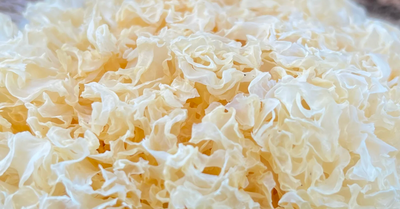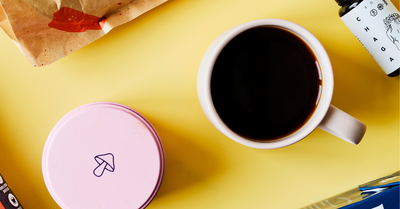
Five Areas Where We Can Avoid Toxins

Five Areas Where We Can Avoid Toxins
Five Areas Where We Can Avoid Toxins
Let's talk toxins. A toxin is effectively a poison, sometimes naturally occurring and other times man-made. They're heavily used in manufacturing, and we want to avoid them wherever possible. Why - they're linked to hormone disruption, birth defects, cancers, weakened immune systems, reproductive issues, and many other health complications. Unfortunately, toxins are all around us and avoiding them is a challenge. In this piece, we look at some simple ways to limit our exposure.
Reduce plastic usage
The first household toxin we think of is bisphenol A, or as it's commonly known, BPA. This is an industrial chemical used to produce polycarbonate plastics and epoxy resins. These are commonly used in products that store food – water bottles, plastic food containers, food packaging – while epoxy resins coat the interior of metal products such as food cans, water supplies and bottle tops. As a result, we're frequently exposed. Research proves it to be both an endocrine disruptor and harmful to young children. So, how do we limit our intake?
- Drink from glass, metal, or ceramic, avoiding hard plastics
- Use BPA-free baby bottles
- Avoid microwaving or reheating plastic containers; use a ceramic or glass alternative instead. As the plastic heats, it breaks down into our food
- Store food in glass or ceramic containers covered in bees wax wraps rather than cling film
- Switch from canned goods where possible, taking a fresh-first approach.
Go organic
Seeking organic alternatives is a great way to reduce toxin exposure. From food and drink to skin care products and clothing, for a product to be classified as organic, it must adhere to strict processes and standards that avoid using certain man-made fertilisers, pesticides, and chemicals. These expose us to unwanted toxins. Choosing organic helps us significantly reduce the concentration of toxins in our body, on our body and in the environment, particularly when it comes to organic food produce. Here are some simple tips:
- Where possible, eat organic or grow your own
- If you can't buy organic, wash foods thoroughly
- Many drinks will have an organic alternative – if not, consider fresh filtered water
- Use organic skin care, beauty products, shampoos and conditioners that have clean, natural ingredients
- Avoid fast fashion brands and instead opt for organic materials such as organic cotton and natural dyes.
Clean naturally
Whether you love it or hate it, cleaning is part of life. This is an area where we encounter hazardous chemicals and toxins frequently, but many think it's unavoidable; far from it. As more people actively seek natural products, many cleaning brands are offering eco-friendly alternatives. Not only that, much of what we need can be found in the kitchen cupboard! Here are our tips for clean cleaning:
- Seek eco-friendly brands that are free from chemicals, toxins and are kinder to the environment
- Raid the cupboards for baking soda, borax, white vinegar, citrus fruit, corn starch, and tea tree oil. DIY cleaning recipes are widely available and effective. Add essential oils for scent
- Hoover and dust regularly – dust bunnies don't just look bad; they mix with volatile organic compounds (VOCs) and formaldehyde released from fabrics, appliances, electronics, furniture, rugs
- Limit the air fresheners – they often contain toxins. Instead, opening a window, fresh flowers or pinecones will keep the home smelling fresh without the chemicals.
Filter your water
Water has amazing health benefits, and we need a lot of it, especially in hot weather. But there are many concerns about the level of toxic PFAS - known as "forever chemicals" - in tap water. In a recent BBC study, half of the water samples taken by scientists across Britain exceeded European safety levels, yet none exceeded the current safety level in England and Wales. Linked to many diseases, including cancer, they're not something we want to be drinking. So, what can we do about it?
- Filter your tap water before you drink it. Look for systems which use granular activated carbon (charcoal filters) or reverse osmosis (RO)
- Purchase a LifeStraw – an advanced filter that is used for expeditions.
Don't stick with non-stick pans
Non-stick pans have revolutionised cooking, particularly for those of us partial to burning dinner. However, this comes at a price. For food not to stick, these pans are coated in a man-made coating called Teflon. At very high heat, Teflon can break down and release toxic gases into the atmosphere. In rare instances, breathing them in can cause polymer fume fever. Longer-term exposure to PFOA – one of the toxins released – had been linked to cancer and thyroid disease. But, we hear you cry – 'non-stick is so handy!'. It is, so here are a few tips on non-stick pans.
- If you're using non-stick pans, keep the heat low and slow to avoid hitting those high temperatures
- Look after your non-stick coating so it doesn't degrade – wash by hand with a sponge and don't use metal utensils that scratch it
- If you don't need non-stick, opt for cast iron or stainless steel instead.










